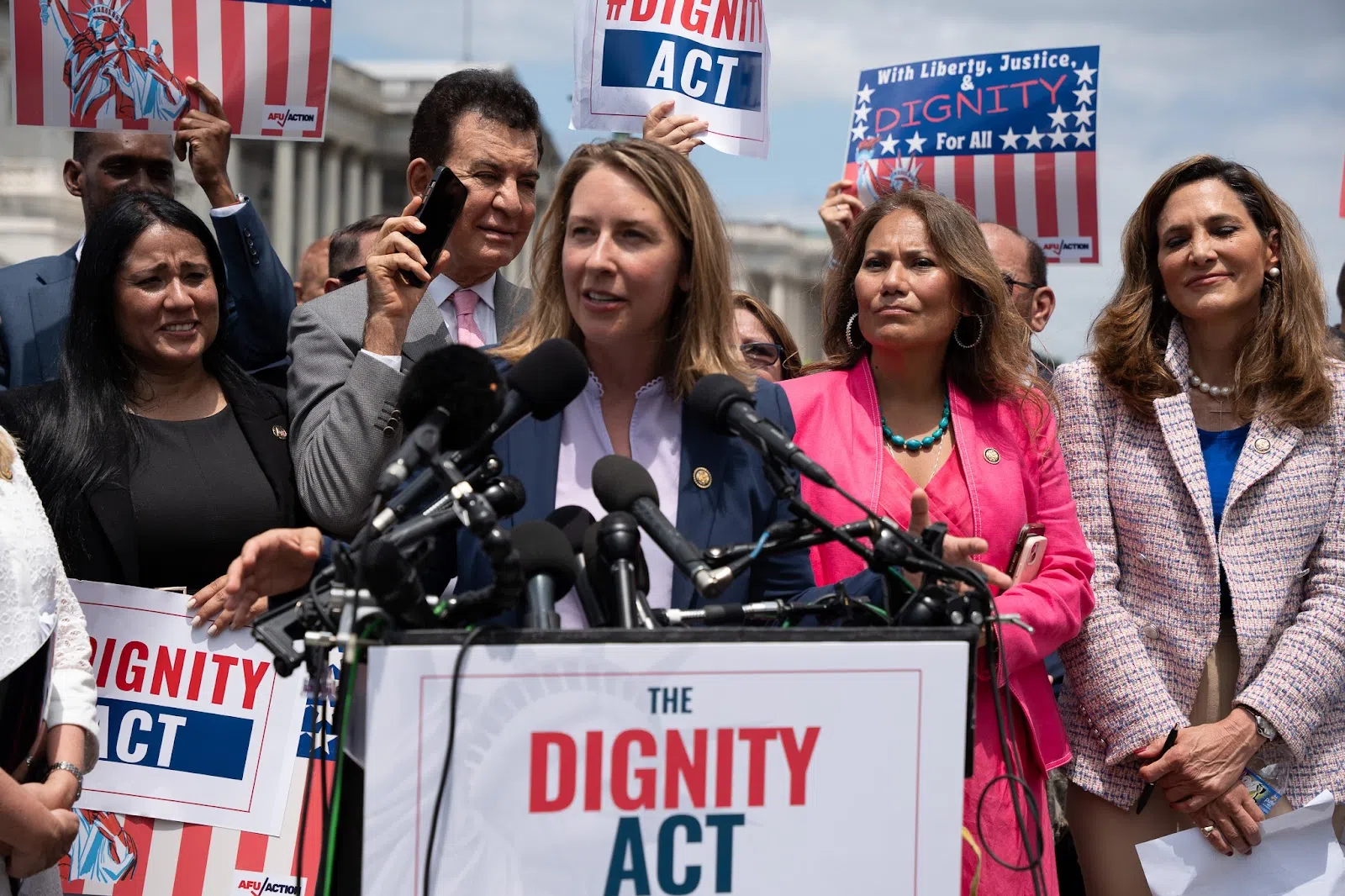WASHINGTON, DC – U.S. Representatives Hillary Scholten (D-MI), alongside U.S. Reps. Maria Elvira Salazar (R-FL) and Veronica Escobar (D-TX), announced the reintroduction of the Dignity Act of 2025, a historic, bipartisan immigration reform bill. Salud Carbajal (D-CA), Mike Levin (D-CA), Susie Lee (D-NV), Adam Grey (D-CA), Laura Gillen (D-NY), Jake Auchincloss (D-MA), Nikki Budzinski (D-IL), Andriano Espaillat (D-NY), Mike Lawler (R-NY), David Valadao (R-CA), Dan Newhouse (R-WA), Mike Kelly (R-PA), Brian Fitzpatrick (R-PA), Gabe Evans (R-CO), Marlin Stutzman (R-IN), Don Bacon (R-NE), and Young Kim (R-CA) also co-sponsored the bill.
This historic bipartisan legislation would address border security and infrastructure challenges, tackle critical workforce development issues, create legal status for undocumented immigrants already living in the United States, establish new pathways for asylum seekers, and create new legal pathways for economic migrants and unaccompanied minors.
“As an attorney who has worked on immigration issues, both at the nation’s top law enforcement agency and at a community legal aid organization, helping migrants in West Michigan, I know this system. I’ve seen firsthand what patchwork and reactionary immigration policies do to families and communities, and I remain committed to creating a system that is both fair and humane, balancing humanitarian concerns with law enforcement. Our broken immigration system is a national security threat, an economic and workforce emergency, and a humanitarian crisis. This is Congress’s issue to solve, and we’re here to solve it,” said Rep. Scholten. “Congress must act now to reform our immigration system. It’s time to allow hardworking families to move out of the shadows and into the full light of the American dream. This bipartisan bill will make our communities and our country safer, bring our workforce into the 21st century, and bring dignity to millions of hardworking families already living in the United States to make our country a better place.”
This comprehensive bill makes meaningful reforms to several aspects of our immigration system:
- Provides a pathway to citizenship for Dreamers
- It creates the Dignity Program to grant legal status to undocumented immigrants already living in the United States;
- It establishes new pathways for asylum seekers and creates new regional processing centers;
- Enhances border security while creating additional accountability for ICE.
The last time Congress passed immigration reform was in 1996, and that was driven by Republicans and signed into law by President Bill Clinton. That bill eliminated several legal immigration pathways, essentially making fewer people eligible for legal status while making more people deportable. Congress has had many opportunities to address this crisis. Over the last 10 years, 8 major pushes for immigration reform have failed:
- In 2013, the Senate on a bipartisan basis passed the Border Security, Economic Opportunity, and Immigration Modernization Act of 2013, but House Republicans refused to take up the bill.
- In 2018, a bipartisan group of Senators advanced the Uniting and Securing America Act to protect Dreamers and provide a pathway to citizenship, but Senate Republicans blocked it.
- Again in 2018, the Senate tried to advance the United and Securing America Act “Common Sense” Proposal Amendment, but Senate Republicans blocked it.
- Yet again in 2018, the Uniting and Securing America Act made it to the Senate floor but was blocked.
- In 2019, the House passed the American Dream and Promise Act, but Senate Republicans blocked it.
- In 2021, the House again passed the American Dream and Promise Act, but Senate Republicans again blocked it.
- In 2021 and 2022, the President proposed record funding for more border agents, more asylum officers, more immigration judges, more border technology, and more detention capacity. Republicans in Congress failed to fund both requests.
- In 2024, the Senate failed to pass bipartisan immigration and border security bills after President Trump called on Senate Republicans to abandon the bill so Republicans could campaign on the issue.

Comments